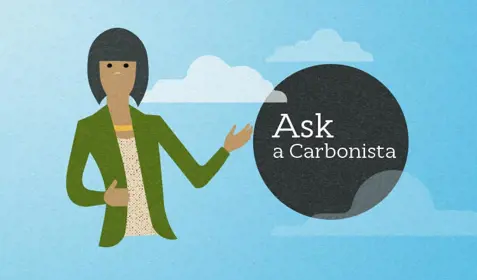I’ve always been a big fan of external hard drives (EHDs) and use them on a fairly regular basis. I mean, what’s not to like? They’re convenient and portable. They’re a great way to quickly transfer documents to a new computer or share large video and image files with co-workers. Sometimes I even use them to make backup copies of my most important files – work projects, family photos – the stuff I really don’t want to lose.
But I also understand that when it comes to backup, EHDs alone do not offer enough protection. That’s because EHDs can get lost, stolen or damaged. And many consumers and business owners may not be aware that sophisticated forms of ransomware and other computer viruses actually target EHDs that are plugged into computers.
I regularly speak to customers like Doug Duncan and Winn Davis Brown who find their way to Carbonite after learning – often the hard way – that EHDs are not meant to be the centerpiece of anyone’s data protection strategy. Let’s take a closer look at why.
The problem with EHDs
EHDs have been around for a long time and many people are comfortable using them. But, as popular as external hard drives are for computer backup, they will only protect you in a few of the scenarios where you’re likely to lose files. The first challenge to using external hard drives as backup is that they will only protect the files or folders you choose to upload. Any large-scale file loss caused by things like a computer crash or disk failure could make you lose more files than just the ones you remember to upload. You should also know that when you backup manually, you could lose anything that’s changed between backups.
Some external hard drives come with backup software, which automates the process and reduces the risk of human error. An external hard drive with backup software gets you partway to a sound backup strategy. But your files are not completely safe from some of the other major causes of data loss such as theft, fires, floods and other natural disasters.
Most people keep their EHDs close to their computers. That means both the original files and any backup copies are vulnerable to all kinds of disasters. If you’re using an EHD for backup, the best way to make sure your files are protected from all major risks is to back up both your computer and your EHD with a cloud backup solution like Carbonite.
EHDs and ransomware
If you’re using EHDs as your sole form of backup, you should also know that your files are not fully protected from ransomware – computer viruses designed by cybercriminals to encrypt your data and hold it hostage until you pay a hefty ransom.
When CryptoLocker, one of the most well-known forms of ransomware, first began making its way across the internet, many victims discovered that it and other forms or ransomware are programmed to seek out and infect attached storage devices such as EHDs.
What about thumb drives?
A thumb drive – also known as a flash or USB drive – is similar to an EHD and offers many of the same benefits, and weaknesses. With thumb drives, it’s relatively easy to drag and drop files or folders for safekeeping. And they’re extremely portable. But that same portability also makes them easy to lose and unreliable for backup.
With thumb drives, backup is a manual process that could easily lead to accidental deletions or file overwriting. And like EHDs, thumb drives are susceptible to ransomware and local catastrophes like fires, floods and theft. They’re also more limited than EHDs in terms of space, so there’s a good chance you won’t be able to fit all the files from your computer onto a thumb drive.
The bottom line
While handy, convenient and useful, EHDs should serve as just one minor component of a more comprehensive data protection strategy. And the best way to keep all of your digital information protected is with automatic cloud backup from Carbonite.
Want to learn more? Read our recent article: Common Cloud Myths Busted: Are external hard drives right for backup?










